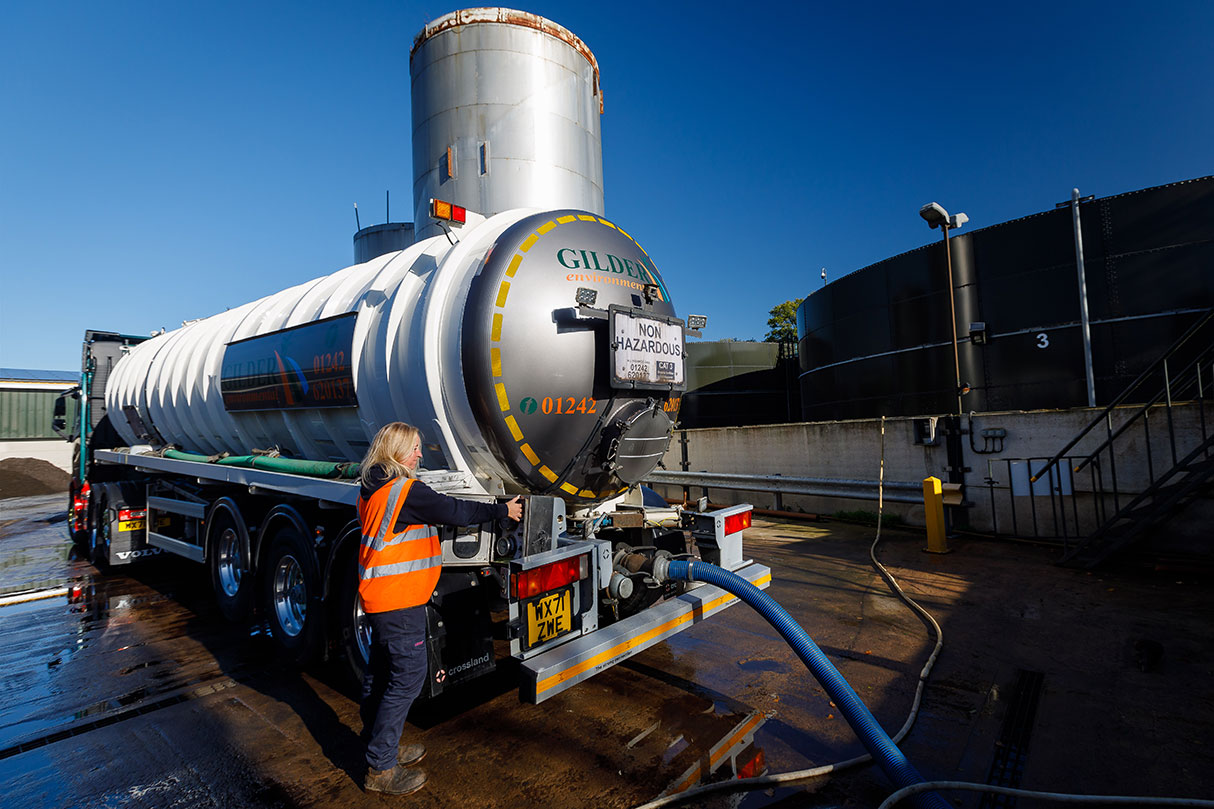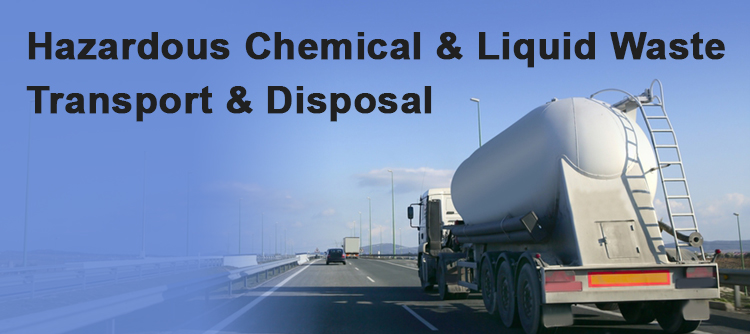Comprehensive Liquid Waste Disposal: Solutions for Residences and Businesses
Comprehensive Liquid Waste Disposal: Solutions for Residences and Businesses
Blog Article
Comprehending the Comprehensive Process of Fluid Waste Disposal: Best Practices and Environmental Impact Considerations
The administration of fluid waste disposal is a diverse issue that needs a complete understanding of numerous best techniques and their associated environmental influences. From the types of fluid waste generated to the approaches utilized for collection, therapy, and final disposal, each action plays a vital role in guarding communities and public wellness.
Sorts Of Liquid Waste
Comprehending the numerous kinds of fluid waste is necessary for effective administration and disposal techniques. Fluid waste can be broadly classified right into several types, each requiring distinct handling and therapy approaches.
Industrial fluid waste frequently has hazardous materials, consisting of heavy metals, solvents, and chemicals, created during manufacturing processes. These wastes demand rigorous regulatory conformity to secure human health and the environment. Residential fluid waste primarily refers to wastewater produced from homes, consisting of sewer and greywater, which, although less hazardous, can still position substantial dangers if incorrectly managed.
Agricultural liquid waste, consisting of runoff from farms, typically consists of fertilizers and pesticides that can lead to environmental destruction if not dealt with sufficiently. Clinical fluid waste, generated from medical care centers, consists of polluted fluids such as bodily fluids and chemicals, calling for specialized disposal methods to avoid infection and environmental contamination.
Lastly, oil and oil waste, commonly created by dining establishments and auto industries, can cause extreme clogs in sewage system systems otherwise taken care of appropriately. Recognizing these classifications helps with targeted methods for treatment, conformity with guidelines, and efficient disposal techniques, ultimately advertising ecological sustainability and public health security.

Collection Methods
Reliable collection approaches are essential for the correct administration of liquid waste, making sure that it is collected securely and efficiently prior to treatment or disposal. Various methods are employed relying on the sort of liquid waste created, the volume, and the particular features of the waste.
One usual method is making use of dedicated collection containers or sumps, which are created to capture fluid waste at the resource. These systems typically integrate pumps that assist in the transfer of waste to larger storage space containers or therapy centers. Furthermore, mobile collection devices equipped with vacuum technology are utilized in scenarios where waste is produced periodically or in hard-to-reach areas.
For industrial setups, closed-loop systems can effectively lessen spills and leakages, permitting the recuperation and reuse of liquid waste. It is also necessary to train employees on appropriate collection methods to alleviate dangers connected with harmful compounds.
Moreover, executing routine upkeep timetables for collection tools ensures ideal performance and security. The integration of sophisticated monitoring systems can enhance collection effectiveness by giving real-time information on waste levels and prospective risks. Generally, efficient collection techniques are fundamental to lasting fluid waste monitoring practices.
Treatment Processes
Therapy processes play a crucial function in the administration of liquid waste, transforming possibly unsafe products right into recyclable sources or secure effluents - liquid waste disposal. These processes can be extensively categorized right into physical, chemical, and organic approaches, each tailored to address specific impurities existing in the waste stream
Physical therapy approaches, such as sedimentation and purification, job by eliminating suspended solids and particulate matter. These techniques are frequently the very first step in the treatment chain, properly lowering the lots on subsequent procedures. Chemical treatments entail using reagents to reduce the effects of hazardous compounds, precipitate heavy metals, or oxidize natural pollutants, therefore improving the security of the effluent.
Organic therapy processes, consisting of triggered sludge systems and anaerobic food digestion, take advantage of on the natural capacities of microorganisms to break down raw material. These methods are especially reliable for wastewater containing biodegradable toxins. Advanced therapy innovations, such as membrane layer filtering and progressed oxidation processes, are progressively used to achieve greater levels of filtration.
Integrating a mix of these therapy methods not just makes certain conformity with regulatory standards however additionally promotes environmental sustainability by recovering important sources from fluid waste.
Disposal Options
How can organizations guarantee the liable and safe disposal of liquid waste? Efficient disposal options are crucial for protecting public health and wellness and the setting. The primary approaches consist of land treatment, incineration, and disposal adhered to by discharge right into community wastewater systems.
Land disposal entails the mindful control of fluid waste in marked landfills, making sure that it does not seep into surrounding soil or water. Incineration, on the various other hand, topics fluid waste to high temperature levels, converting it into ash and gases, which need proper filtration to decrease emissions. This technique is ideal for contaminateds materials that can not be dealt with via typical means.
In official statement cases where fluid waste can be dealt with, organizations might go with biological or chemical treatment processes to reduce the effects of damaging elements before discharging the treated effluent right into municipal systems. This route commonly aligns with governing requirements, ensuring that the effluent satisfies safety and security criteria.
Inevitably, companies need to conduct comprehensive evaluations of each disposal choice to determine its viability, thinking about factors such as waste composition, regulative conformity, and potential risks to health and the atmosphere. By selecting suitable disposal approaches, businesses can contribute to an accountable waste management approach.
Environmental Influence
The ecological influence of liquid garbage disposal is a critical factor to consider for organizations seeking to decrease their eco-friendly impact. Improper disposal approaches can cause substantial contamination of water sources, dirt destruction, and damaging impacts on local ecosystems. As an example, unsafe liquids can seep right into groundwater, posturing risks to drinking water products and aquatic life. Furthermore, the discharge of neglected or improperly dealt with waste right into surface waters can lead to eutrophication, resulting in oxygen exhaustion and the succeeding death of fish and other organisms.

To reduce these impacts, companies need to take on best methods such as applying strenuous waste therapy procedures, promoting recycling and reuse, and sticking to regulative standards. By taking a positive approach to fluid waste administration, entities can substantially lower their environmental impact while sustaining sustainable growth goals. Ultimately, a detailed understanding of the environmental effects linked with hop over to here fluid garbage disposal is essential for educated decision-making and liable stewardship of all-natural resources.
Conclusion
Effective management of fluid waste is critical for guarding environmental honesty and public health. Inevitably, a comprehensive understanding of liquid waste disposal not only alleviates ecological influences however additionally cultivates a commitment to liable resource administration and ecological stewardship.
The management of liquid waste disposal is a multifaceted concern that requires a detailed understanding of various finest techniques and their connected ecological effects. From the types of liquid waste generated to the techniques used for collection, therapy, and last disposal, each action plays a critical function in safeguarding communities and public health.The environmental influence of fluid waste disposal is a critical consideration for organizations seeking to lessen their ecological footprint. Ultimately, a thorough understanding of the ecological impacts linked with liquid waste disposal is necessary visit our website for notified decision-making and liable stewardship of all-natural sources.
Eventually, a thorough understanding of fluid waste disposal not only reduces environmental impacts but likewise promotes a dedication to liable source monitoring and environmental stewardship.
Report this page